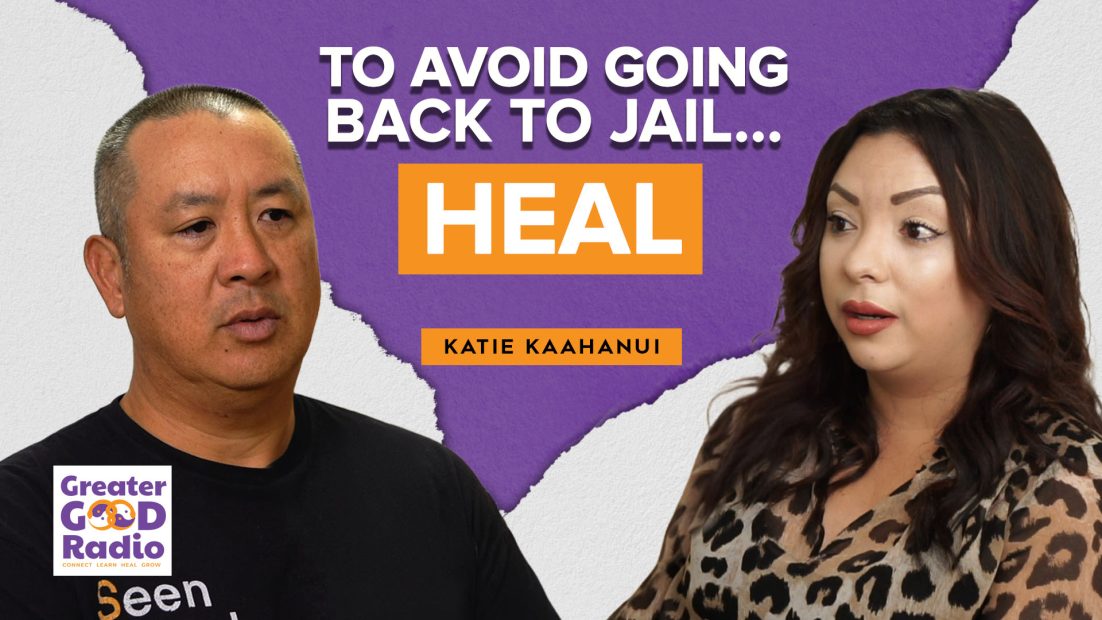What If Healing Replaced Punishment? Exploring Alternatives with Katie Kaahanui
In a world where the default response to crime often involves punitive measures, Katie Kaahanui asks us to consider a different path—one where healing and understanding replace punishment. Katie, an aspiring public defender turned mental health advocate, shares her transformative journey and the insights she’s gained on the front lines of the criminal justice system.
The Road to Advocacy
Katie’s journey into the depths of the criminal justice system began with a fascination for understanding the underlying causes of criminal behavior. “I didn’t understand why, because I don’t think anybody wants to get in trouble,” Katie explains. Her initial goal was to advocate for those caught in the cycle of crime and punishment as a public defender, believing that legal defense was the best way to support individuals who, in her eyes, needed mental health or addiction treatment more than incarceration.
However, her firsthand experiences in the courtroom revealed a troubling cycle of re-offense and a clear indicator that deeper mental health issues were at play. “It’s clear that these people are just dealing with mental health issues,” she recounts, recalling how defendants often seemed unaware of their surroundings, incapable of engaging with the proceedings in a meaningful way.
Shifting Perspectives
The turning point for Katie came as she witnessed the recurring plight of individuals struggling within the system—people who often had no understanding of why they were there or what was being asked of them. This realization forced her to rethink her approach to advocacy. “After seeing that for months and months, I would go home with knots in my stomach,” she says, highlighting the emotional toll of witnessing such profound disconnection and confusion among defendants.
Determined to find a better way to assist these individuals, Katie took her quest to the prisons themselves, volunteering her time to speak directly with the incarcerated men and women. These conversations confirmed her suspicions: many of the behaviors leading to criminal charges stemmed from unaddressed childhood traumas and mental health issues.
A New Path Through Education
Motivated by her experiences, Katie pursued a master’s in criminal justice followed by another in mental health counseling. Her education aimed to blend legal insight with psychological understanding, forming a comprehensive approach to helping individuals rebuild their lives. “Combining that would be how I can work with people on a more intimate, person-to-person basis and really help them to deconstruct what they’re going through,” she describes.
The Case for Healing
Kaahanui’s advocacy now focuses on how the justice system can incorporate therapeutic support and rehabilitation instead of relying solely on punitive measures. She argues that by addressing the root causes of criminal behavior, particularly through mental health support, we can transform lives and potentially reduce the cycle of crime.
“Everybody is dealing with unhealed things from their childhood, and they’re responding to it in ways that really almost damage their life right now,” Katie points out. The solution, she suggests, lies not within the walls of a prison but in the healing potential of therapy and understanding—a sentiment that resonates deeply in her ongoing work.
Conclusion
Katie Kaahanui invites us to reconsider our approaches to justice and punishment. By shifting our focus from punitive isolation to restorative healing, we may uncover more effective methods of rehabilitation and, ultimately, a more humane way to address crime. This powerful dialogue opens up a vital discussion on the potential for reform and the critical role mental health plays in shaping safer, healthier communities.
CLICK HERE to SUBSCRIBE to our YouTube channel
Podcast: Play in new window | Download
Subscribe: Apple Podcasts | Spotify | RSS

